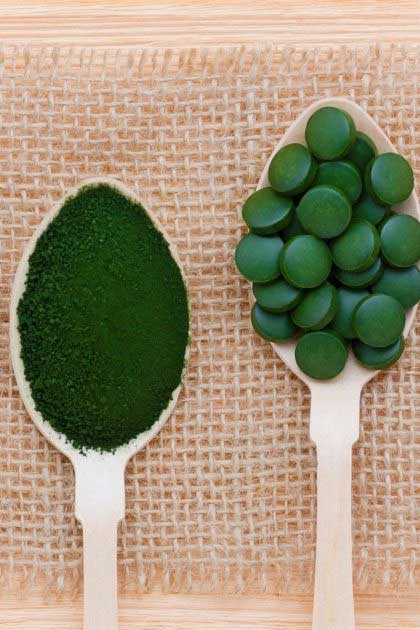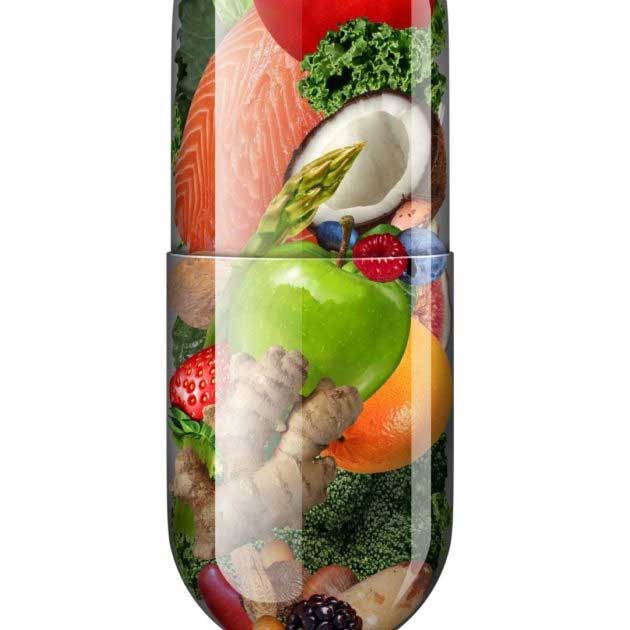Introduction
What’re algae? Is it the smelly green pond scum that makes you crinkle your nose and hold your breath when you walk past it? Is it some kind of seaweed? Maybe it’s some kind of jello?
Actually, yes it is — except for the jello. Some algae are familiar to most people — seaweed such as kelp, pond scum, and algae blooms in lakes are the most common. However, there’s a whole world of algae out there that is beneficial to humans.
The term algae refer to a group of varied organisms that produce oxygen by photosynthesis like most plants. However, unlike plants, they have no roots, stems, leaves, or vascular system. Algae are unicellular, come in a variety of sizes and forms, and can live in both freshwater and saltwater.
While some algae can be toxic, there are other forms that have health benefits for humans, specifically, Spirulina and Chlorella (blue-green algae). The popular seaweed, nori, is also an edible staple in Asian cuisines.
Spirulina or Chlorella?
Spirulina and Chlorella are blue-green algae that grow in salt water and some freshwater lakes. But, hey, how are they different?
While both are excellent sources of many nutrients, there are some key differences. Both are rich in polyunsaturated fatty acids like the omega-3s and omega-6s, however, chlorella has the edge when it comes to the omega-3s. Spirulina is higher in omega-6 fatty acids.
Omega-3 fatty acids may help lower inflammation, the risk of heart disease and certain cancers, and improve bone health. However, you’d need to consume a whole lot of algae to meet your daily omega-3 requirements as people tend to eat algae in small quantities.
If you’re a vegan looking for an alternative to omega-3 supplements derived from fish, concentrated algae oil supplements may be an option to consider.
While both are good sources of protein, Spirulina may be a bit higher — some studies show Spirulina may be up to 10% higher in protein than chlorella. Both Spirulina and Chlorella contain easily absorbable forms of all the essential amino acids your body needs.
Both are loaded with free-radical killing antioxidants. And who doesn’t want to get rid of oxidative stress?
In one study, 52 smokers took 6.3 grams of Chlorella or a placebo for 6 weeks. Those who received the supplement had a 44% increase in Vitamin C and a 16% increase in Vitamin E. They also showed a significant decrease in DNA damage.
In another study with COPD patients given 1-2 grams Spirulina for 60 days, there was a 20% increase in the antioxidant enzyme, superoxide dismutase, along with a 29% increase in Vitamin C levels.

Spirulina and Chlorella Benefits
Spirulina
Spirulina may be one of the most nutrient-dense foods on this earth. 1 tablespoon of dried Spirulina powder contains:
- 4 gm high-quality protein — the quality of the protein is comparable to that found in eggs.
- 11% of the RDA for iron
- 21% of the RDA for copper
- 11% of the RDA for Vitamin B1 (thiamine)
- 15% of the RDA for Vitamin B1 (riboflavin)
- 4% of the RDA for Vitamin B3 (niacin)
- Plus 1 tablespoon contains only 20 calories and 1.7 gm of digestible carbs.
The active compound in Spirulina is phycocyanin. Phycocyanin is loaded with free-radical fighting antioxidants responsible for its anti-inflammatory benefits. It’s also responsible for Spirulina’s distinctive blue-green color.
Cholesterol
Several studies have indicated Spirulina may help lower LDL and triglyceride levels while raising good HDL cholesterol levels. Various studies have shown that 4.5 gms of Spirulina daily may help lower blood pressure.
Cancer
Spirulina may be helpful in minimizing the side effects of chemotherapy and radiation. A 2001 animal study indicated it may help protect the body from the harmful effects of chemo.
Immune System
Boosting the immune system is another Spirulina benefit due to the antioxidant compound phycocyanin.
Weight Management
Spirulina is loaded with nutrients but only contains 20 calories per tablespoon. It also contains the appetite-suppressing amino acid l-phenylalanine.
Allergies
If your springtime allergies are driving you crazy, 2 gm of Spirulina may help bring some relief!
Chlorella
Detoxification
Chlorella has the highest concentration of chlorophyll in the world. It’s a natural heavy metal detoxifier with a chemical concentration similar to that of red blood cells. It can attach to any kind of toxin due to its hard cell walls — kinda like a window washer for your cells.
A 2009 study found Chlorella helped alleviate heavy metal poisoning by decreasing tissue damage by lowering cadmium absorption.
Spirulina and Chlorella Side Effects
Women who are pregnant or breastfeeding should avoid algae supplements because of the lack of safety data. If you have an autoimmune disease such as rheumatoid arthritis or are taking immunosuppressive drugs, you may want to avoid algae supplements since they may stimulate the immune system.
Algae supplements may increase your risk of bleeding and should be avoided by anyone with a blood clotting disorder. Chlorella contains iodine and should be avoided if you have an allergy or sensitivity to iodine.

How To Choose a Supplement
Buyer beware with all supplements — especially algae supplements. Look for brands that on organic, non-GMO, and gluten-free to help cut down on cross-contamination.
Also, check the brand’s website to find out where the algae are sourced and whether there’s any testing to verify it’s not contaminated. Not every brand tests for toxicity so be wary of any that don’t. Pay close attention to the source!
Trust me, if a company is going through the hassle and expense of testing, they will want you to know it!
Conclusion
If you give the body the nutrients it needs, it will protect you. The body can absorb about 99% of the algae you consume because the body can recognize it. The many benefits of algae such as Spirulina and Chlorella may make it something to consider adding to your healthcare arsenal.
Have you ever given algae in food or supplements a try? Leave a comment and let me know what you think!
***Disclaimer: This post is for informational purposes only and should not be construed as medical advice***

